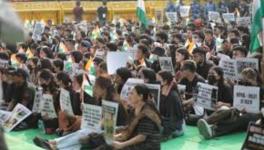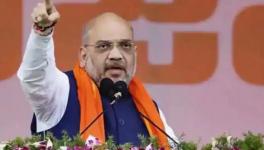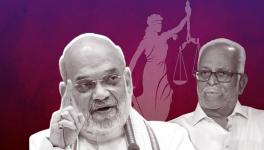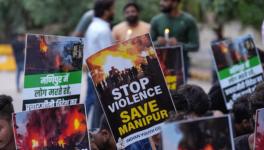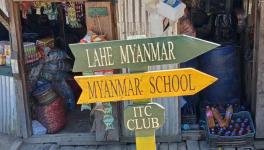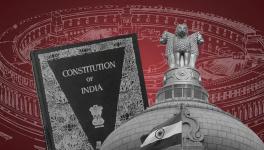Manipur: PM’s Visit Yields Little Substance
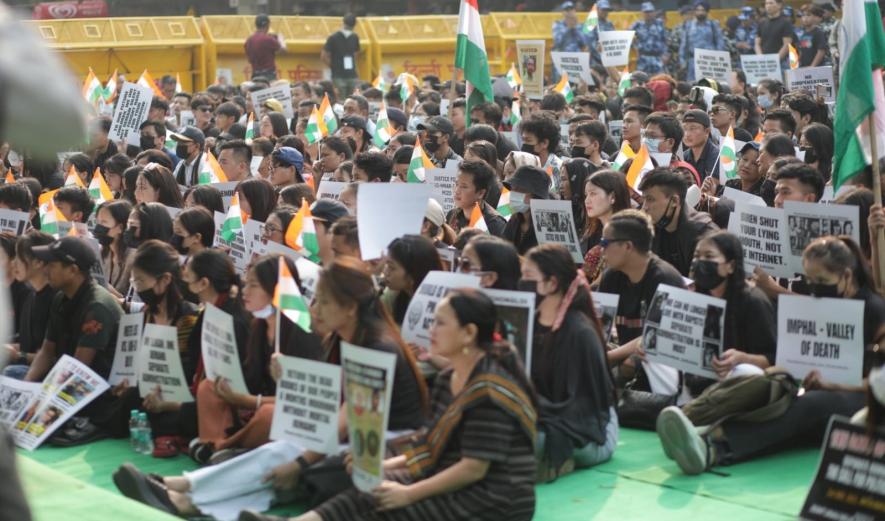
File Image
Kolkata: In the 2025 calendar, September will, perhaps, qualify to be treated as a month of more than usual significance for strife-scarred Manipur because of two reasons. First, ignoring the opposition of the Valley-based Meiteis, who account for 53% of the population, the Ministry of Home Affairs (MHA) piloted the signing of a tripartite Suspension of Operations (SoO) agreement with Kuki outfits, which included militant units and a civil society organisation (CSO) on Thursday, September 4.
Second, on Saturday, September 13, Prime Minister Narendra Modi visited Manipur, 28 months and 14 days after the outbreak of widespread ethnic violence between the tribal Kuki-Zos and the Meitei people on Wednesday, May 3, 2023 on the issues of ST (Scheduled Tribe) status and land rights.
The Prime Minister’s visit, which lasted about five hours, was welcomed by certain sections and also attracted at least one sarcastic comment: “A stopover in Manipur, after so much dithering”. This remark has to be viewed against his schedule for that day – first a visit to Mizoram and then reaching Manipur (It was a three-state, two-day schedule that included a visit to Assam on September 14).
The SoO was an informal arrangement between the Army and constituents of ultra Kuki National Organisation (KNO) and United People’s Front (UPF) since August 1, 2005. It was formalised as a tripartite deal among New Delhi, Manipur government and KNO-UPF constituents.
The then Chief Minister N Biren Singh got his cabinet’s okay for revoking SoO, keeping in view the Meitei community’s as also his own opposition to it. Singh also got the Assembly’s approval on February 29, 2024, for a resolution that urged the Centre to rescind SoO, which was subject to extension at pre-determined intervals. Ultimately, the then Chief Minister opted out when its extension date was approaching (He quit on February 9 and the state came under President’s Rule on February 13].
Read Also: Manipur: Civil Society Orgs Want Aborted Peace Panel Proposal Reactivated
After a series of meetings in New Delhi between September 1 and 3, the MHA accepted KNO-UPF’s demand for reactivating SoO, facilitated an agreement on September 4 and, by implication, rejected the Meitei CSOs’ opposition to the SoO. It is a fact that the fresh SoO is on renegotiated terms, which include relocation of seven designated camps away from areas vulnerable to conflict, fewer designated camps, relocation of the weapons with the nearest CRPF, BSF camps, stringent physical verification of cadres by security forces to “de-list foreign nationals, if any and joint monitoring of ground rule enforcement with a provision for review in case violations are detected.
Predictably, the MHA initiatives evoked strong reaction from the Meitei CSO Coordination Committee on Manipur Integrity (Cocomi) which struck to its description of the third side as “Chin-Kuki armed narco-terrorist groups and called the deal as one that is “completely against the interests of the indigenous people of Manipur”. Cocomi will persist with its opposition to it also because New Delhi has turned this as a bargaining chip with armed narco-terrorist groups; although the Constitution guarantees free movement to every citizen across the country as a fundamental right.
Read Also: Manipur Naga Outfits Want Inter-Ministerial Team for Talks
This part of Cocomi’s reaction is directly linked to what may be termed as sub-deal for free movement of commuters and goods through NH2, the controversy-ridden key road that connects the Imphal Valley in Manipur to Dimapur in Nagaland and further to Assam via the hill district of Kangpokpi.
Land-locked Imphal Valley is very dependent on NH2 for supplies. Stretching a point, it can be argued that MHA has hastened a modified SoO to cover up its prolonged failure to ensure free movement through NH2 and, at the same time, rebuffed Biren Singh, himself a Meitei of standing, for accentuating the ethnic divide by his administrative and political actions, according to informed quarters.
The MHA’s emphasis on linking the NH2 issue with the SoO accord on September 4, it is now clear, was intended to ensure free movement during the Prime Minister’s impending visit. This, informed quarters told NewsClick, is quite logical. But, MHA’s announcement regarding KZC’s acceptance of the free movement through NH2 became controversial subsequently.
On September 15, that is, two days after Modi’s visit, KZC said it would not declare the reopening of NH2 till a settlement is reached between the warring sides. Eruption of violence had led to its shutdown. As there is still no accord or settlement, no one from either side must cross the buffer zones. “Our request (reference to MHA’s September 4 announcement) was only to the people of Kangpokpi to extend cooperation to the security forces in maintaining safety of commuters” along NH 2”. KZC further said: “The buffer zone must be respected ; any violation will lead to serious consequences ….” Buffer zone security is the Centre’s responsibility.
The two contentious zones are: Imphal West-Kangpokpi border checkpost between the Meitei-dominated Imphal West district and the Kuki-Zo majority Kangpokpi district. This is one buffer zone. The other buffer zone is between the Meitei-majority Bishnupur district and the Kuki-Zo dominated Churachandpur district, which requires travellers to pass through seven security checkposts that are under the care of Manipur Police, Assam Rifles, CRPF and BSF.
Modi addressed two meetings; first at Churchandpur and later at Imphal; thereby seeking to assuage the feelings of both sides – tribals inhabiting the Hills and Meiteis living in the Valley. As is his practice during state visits, here too he announced/ inaugurated projects worth Rs 7,300 crore and sought to bridge the divide saying the Union Government was with the people of Manipur which, he believed, was set to witness a ‘new dawn’.
At the moment, these are, at best, pious hopes; nothing more. The hardening of the Kuki-Zos’ stance is obvious in the SoO reactivation (though MHA’s claims terms are stringent), rejection of MHA’s September 4 interpretation of movement through NH2 and the diktat regarding buffer zones. If the situation is delicate for MHA, it is one of helplessness for the Bharatiya Janata Party which led the coalition ministry in Manipur before President’s Rule was imposed on February 13 (it has since been extended for six months with effect from August 13).
The tribal community has 10 MLAs (Assembly under suspended animation), of which seven are BJP members. They submitted a memorandum to Modi during his visit. It read: “We look forward to a historic shift in our political future …. You are fully aware of how our people have been … cleansed from the valley areas …. It is an unprecedented ethnic persecution, with state complicity, by the majority community on our minority community. We can now live in peace only as good neighbours, never under the same roof again. We urge you to expedite the dialogue to address our demand for a separate UT with Legislature”.
During his interaction with select internally displaced persons (IDPs) at a relief camp, the Prime Minister has had to put up with similar plainspeak. According to a report in The Hindu edition of September 22, Samuel Vaiphei, one of the select IDPs and who teaches children at a relief camp, told Modi about their pain and suffering. The report quotes him as telling Modi: “…., we do not want to live with the Meiteis any more”.
Asked about Modi’s visit and ministry-making possibilities, BJP’s Kuki MLA Paolienlal Haokip told NewsClick: “Optics may help BJP in living down the relentless Opposition charge that the Prime Minister had shied away from visiting the strife-scarred state for over 28 months; but nothing much of substance appears to have happened. And if without us (10 Kuki MLAs), New Delhi (the Centre and BJP high command) can install a ministry, we have nothing to say”. Which is a telling commentary on the BJP leadership’s failure in bridging the divide among its rank and file.
The writer is a senior freelance journalist based in Kolkata. The views are personal.
Get the latest reports & analysis with people's perspective on Protests, movements & deep analytical videos, discussions of the current affairs in your Telegram app. Subscribe to NewsClick's Telegram channel & get Real-Time updates on stories, as they get published on our website.










